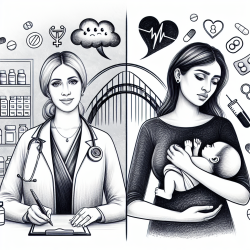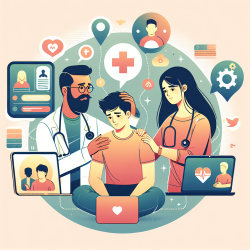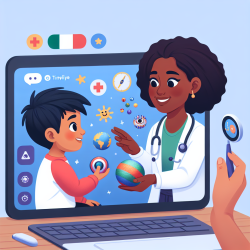Empowering Caregivers: Transforming Opioid Use Treatment for Our Youth
As practitioners dedicated to the well-being of children, it is crucial to stay informed about the latest research and implement evidence-based strategies. A recent study titled "Becoming our young people’s case managers: caregivers’ experiences, needs, and ideas for improving opioid use treatments for young people using opioids" offers valuable insights into the role of caregivers in supporting youth with opioid use disorders (OUD). This blog will explore the key findings and practical applications of this research to enhance your practice and improve outcomes for young people.
Understanding Caregivers' Experiences
The study highlights two primary themes in caregivers' experiences:
- Becoming Case Managers: Caregivers often find themselves navigating multiple systems and roles to support their young person. They build their knowledge of opioid use, search for services, and connect with various providers, all while maintaining a relationship with their child.
- Enduring a Never-Ending Rollercoaster: The emotional strain of keeping their young person safe and alive is immense. Caregivers face constant fear, helplessness, and frustration, compounded by stigma and lack of understanding from others.
Identifying Caregivers' Needs
Caregivers expressed several needs to improve their experiences and support their young people effectively:
- Expand Organizational and System-Level Capacity: There is a need for timely access to services, cohesive care, and comprehensive treatment plans that address young people's diverse needs.
- Wider-Spread Understanding of Opioid Use as a Health Issue: Reducing stigma and recognizing opioid use as a health issue can lead to better intervention opportunities and support for caregivers and young people.
Implementing Practical Solutions
Based on the research findings, practitioners can take several steps to support caregivers and improve outcomes for young people:
- Develop Peer Support Networks: Establish programs that connect caregivers with others who have similar experiences. This can provide valuable knowledge, resources, and emotional support.
- Create Comprehensive Treatment Plans: Ensure that treatment plans are flexible, inclusive, and address the root causes of opioid use. Integrate mental health, substance use, and life skills training into the treatment process.
- Promote Continuous and Cohesive Care: Assign consistent case managers or advocates to support young people throughout their treatment journey. Facilitate smoother transitions between different treatment types and services.
- Enhance Service Provider Competency: Provide training in active listening, non-judgment, and cultural safety to improve interactions with young people and their families.
- Increase Public Awareness: Implement public awareness campaigns to reduce stigma and promote understanding of opioid use as a health issue.
Encouraging Further Research
While this study provides valuable insights, there is still much to learn about the role of caregivers in opioid use treatment for young people. Practitioners are encouraged to engage in further research and contribute to the growing body of knowledge in this area. By doing so, we can continue to develop and implement effective, evidence-based interventions that support both young people and their caregivers.
To read the original research paper, please follow this link: Becoming our young people’s case managers: caregivers’ experiences, needs, and ideas for improving opioid use treatments for young people using opioids.










